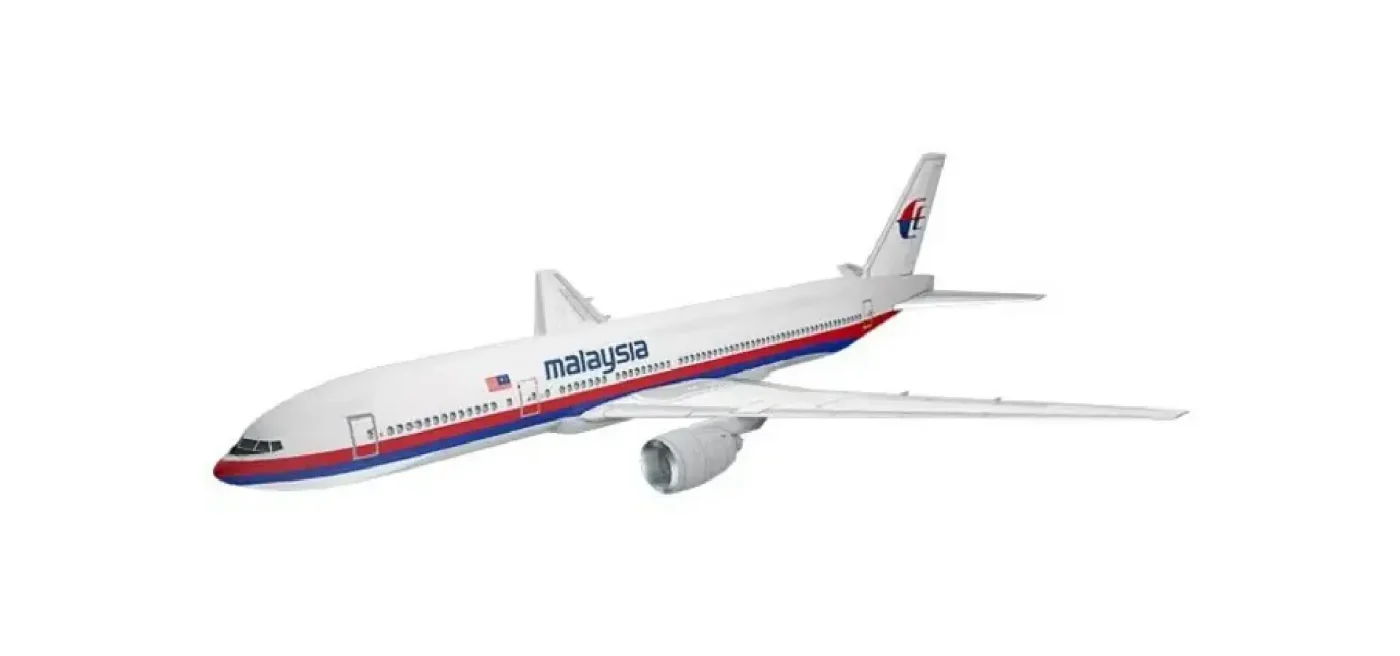More than a decade after the tragic downing of Malaysia Airlines Flight MH17, the pain of loss remains raw for the families of the 298 victims. On July 17, 2014, the Boeing 777, en route from Amsterdam to Kuala Lumpur, was shot down by a Russian surface-to-air missile over eastern Ukraine, a region embroiled in conflict between Ukrainian forces and pro-Russian separatists. Among those lost was Captain Wan Amran Wan Hussin, the pilot who commanded the flight. Now, his son, Wan Yusuf Irfan Wan Amran, has spoken out following a recent ruling by the International Civil Aviation Organisation (ICAO), which held Russia responsible for the disaster. His words carry not just personal grief but a broader call for justice, compassion, and accountability from both Malaysian authorities and the international community.
A Personal Loss Amid a Global Tragedy
For Wan Yusuf Irfan, the downing of MH17 is not just a historical event or a geopolitical footnote—it is the day he lost his father. He was only nine years old when the news broke, forever altering the trajectory of his life. “Over a decade has passed, yet not a day goes by without thoughts of him” he shared, reflecting on the enduring absence of his father. “His laughter, his discipline, and his quiet strength are deeply missed” he added, painting a picture of a man who was not just a pilot but a guiding light in his family.
Captain Wan Amran was at the helm of Malaysia’s national carrier, a symbol of pride for the nation, when the plane was struck. The attack claimed all 298 lives on board, including passengers and crew from multiple countries, making it one of the deadliest aviation disasters in modern history. Investigations over the years, including those by the Dutch-led Joint Investigation Team (JIT), have consistently pointed to a Russian-made Buk missile as the weapon used, launched from territory controlled by pro-Russian forces. The ICAO’s recent findings have reaffirmed these conclusions, placing legal and moral responsibility squarely on Russia.
A Call for Justice and Recognition
The ICAO ruling, announced earlier this week, has reignited demands for accountability. For Wan Yusuf Irfan, it is a bittersweet moment—a validation of what many have long believed, yet a reminder of the slow pace of justice. “MH17 was not just a plane; it was our national carrier, carrying our people under our flag” he said. “The ICAO findings and international investigations have made it clear—Russia was responsible. And still, the authorities have failed to act with the resolve and compassion expected in the face of one of the worst aviation tragedies in history.”
His frustration is palpable, directed not only at the international community but also at Malaysian officials. He described the response from the Transport Ministry as “cold, procedural, and lacking in even the most basic forms of human compassion.” On Tuesday, Transport Minister Anthony Loke announced that the ministry would issue a statement regarding the ICAO findings, but for families like Wan Yusuf Irfan’s, such responses feel inadequate. “We, the next of kin, have been treated as if we are just a footnote in a long-forgotten chapter” he lamented. “There has been no significant recognition, no clear path toward justice, and certainly no meaningful compensation that reflects the scale and gravity of this international atrocity.”
The Struggle for Compensation and Dignity
Compensation has been a contentious issue for the families of MH17 victims. While some financial settlements have been made over the years, many feel that the amounts and processes do not reflect the magnitude of their loss. Wan Yusuf Irfan emphasized that compensation should not be merely a financial transaction but a gesture of national duty and dignity. “Compensation should be paid not just as a financial obligation, but as a symbol of dignity” he argued, adding that families should not have to “chase what is rightfully theirs.”
The Malaysian government has faced criticism for its handling of the aftermath, with some families alleging a lack of transparency and emotional support. Although Malaysia Airlines reached settlements with many families in the years following the disaster, the broader question of state-level accountability—particularly from Russia—remains unresolved. Russia has consistently denied involvement, despite mounting evidence from international investigations, further complicating the path to justice.
A Son Following in His Father’s Footsteps
Amid his grief and advocacy, Wan Yusuf Irfan is carving his own path in aviation, a field deeply tied to his father’s legacy. He spoke of his father’s mentorship as something “stolen” not only by those responsible for the attack but also by a system that he believes failed to defend Captain Wan Amran’s honor after his death. “Captain Wan Amran served Malaysia with pride. He was not just a pilot. He was a son of this nation, and he died carrying our flag in the sky” he said. “It is heartbreaking to know that his service and his sacrifice have not been met with the respect and protection they deserve.”
His decision to pursue a career in aviation is both a tribute to his father and a personal act of resilience. Yet, it also underscores the weight of unresolved trauma—each step in his professional journey is a reminder of the guidance he lost on that fateful day in 2014.
The Broader Geopolitical Context
The downing of MH17 occurred at a time of heightened tension in eastern Ukraine, where pro-Russian separatists, backed by Moscow, were engaged in armed conflict with Ukrainian forces following Russia’s annexation of Crimea earlier that year. The tragedy brought to light the dangers of civilian aircraft flying over active conflict zones, prompting global calls for stricter aviation safety protocols. In the years since, international courts and investigative bodies have sought to hold perpetrators accountable, with several individuals linked to the attack facing charges in absentia in Dutch courts.
However, geopolitical complexities have hindered progress. Russia’s refusal to cooperate with investigations or acknowledge responsibility has drawn widespread condemnation, yet diplomatic and legal mechanisms to enforce accountability remain limited. For Malaysia, a nation far removed from the conflict in Ukraine, the disaster has been a painful reminder of how global conflicts can reverberate across borders, claiming innocent lives and leaving lasting scars.
Voices of the Families and the Path Forward
Wan Yusuf Irfan’s plea is not just for his own family but for all those affected by the MH17 tragedy. “We do not ask for pity. We ask for justice. We ask for memory. We ask for compassion. We ask to be seen” he said in a heartfelt appeal to the Malaysian government and the international community. His words echo the sentiments of many families who have spent over a decade seeking closure, often feeling overlooked in the broader narrative of geopolitical maneuvering.
Public sentiment, as reflected in social media discussions and comments on platforms like X, shows a mix of empathy for the families and frustration with the lack of decisive action. Many Malaysians view MH17 as a national tragedy, one that demands a stronger stance from their government on the global stage. Others express skepticism about whether justice will ever be fully served, given the political intricacies involved.
A National and International Responsibility
The ICAO ruling offers a renewed opportunity for Malaysia to push for accountability, both domestically and internationally. Legal experts suggest that the findings could strengthen Malaysia’s position in seeking reparations or further sanctions against those responsible. However, the road ahead remains uncertain, particularly as Russia continues to reject the conclusions of international bodies.
For now, the Malaysian government faces a dual challenge: addressing the emotional and moral needs of the victims’ families while navigating the complex terrain of international diplomacy. Transport Minister Anthony Loke’s forthcoming statement will likely be scrutinized for its tone and content, with families and observers alike hoping for a commitment to tangible action rather than procedural rhetoric.
As the world reflects on the ICAO’s findings, Wan Yusuf Irfan’s voice serves as a poignant reminder of the human cost behind the headlines. His call for justice is not just about legal outcomes but about ensuring that the memory of Captain Wan Amran and the 297 other souls lost on MH17 is honored with the dignity they deserve. Whether this latest development will mark a turning point in the long quest for accountability remains an open question, one that carries profound implications for the families, for Malaysia, and for the principles of international justice.
















